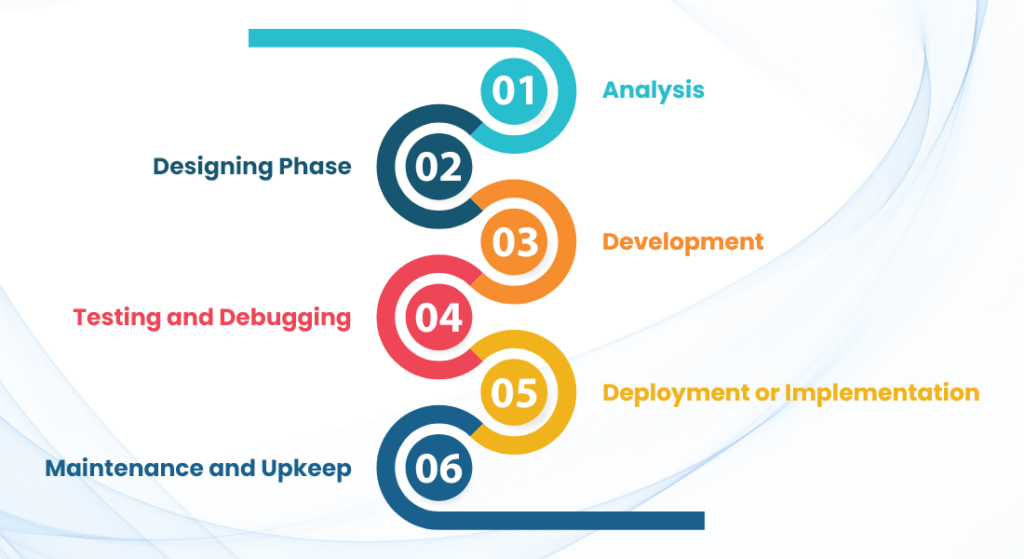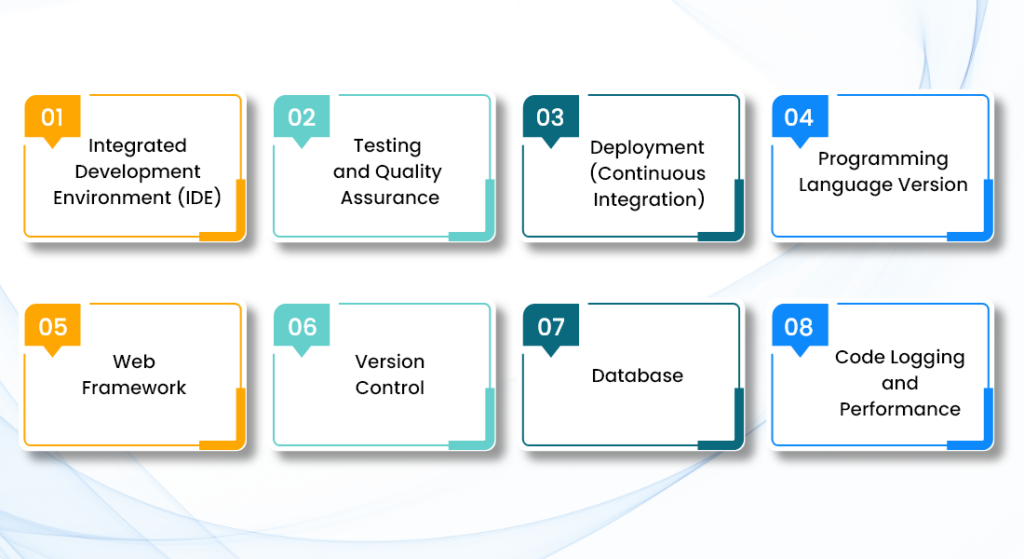In terms of development, best does not always mean popular; choosing the best depends on the context. We consider popularity as a credible tool to judge the performance or applicability of a tool, and that is because many people are using it for their work.
There are a few Java tools that web developers can utilize in different phases of programming/development to help them execute their Java code more successfully. Java is a popular programming language that has been existent for a long time.
Due to this, the wide range of tools available to work with Java is no surprise. But having these many tools makes it difficult to choose the one for your project.
This guide will list the best Java tools for development in every phase.
A Short Overview of all Development Stages
Table of Contents
Developing an application or software is a process, and as every process is completed in stages, this one also follows a set procedure. Every stage in the development lifecycle is connected, where the completion of one stage sets the foundation for the next one.
Here are the six main development stages.


- Analysis: Every development project begins with understanding the requirements and then analyzing them to ascertain the project’s fitness. The purpose is to understand the requirements and know whether the development team can execute them.
- Designing Phase: The second stage in Java development services caters to designing the application or software. Here the designing team will build sketches, mockups, high-fidelity prototypes, and clickable prototypes. The purpose is to help visualize how the solution will look post-development.
- Development: The developers here get to work by using different Java tools to develop and produce the software or application code. Not only here, but the java development tools are available for all the stages.
- Testing and Debugging: This is where dedicated testing and quality assurance professionals conduct different types of testing on the code. The purpose is to ensure that the code is performing well; it is readable, scalable, and clean.
- Deployment or Implementation: Here, the developed and tested code is deployed in the form of the final product on the intended platform. Special tools are used by the developers to deploy the solution.
- Maintenance and Upkeep: The development lifecycle does not end because, after deployment, we also need to maintain and update the solution fulfilling new demands from the customers and solving their issues.
To complete these stages, you need to outsource the work to a Java development company or hire Java developers for in-house development. In any case, the professionals will need to work with some Java tools that will support them in development, testing, and maintenance tasks.
Best Java Tools for Development
What follows is an account of different tasks and components of development and the tools you can use for each of these tasks.


- Integrated Development Environment (IDE)
An IDE is a comprehensive platform offering developers different development facilities under a single platform. Every IDE has a source code editor, build automation tools, and a code debugger.
To execute Java development services with grace and authenticity, the best IDE is Eclipse. However, IntelliJ IDEA is always in Eclipse’s hindsight giving it a cutthroat competition, but the latter has remained ahead.
Both Eclipse and IntelliJ IDEA are open source IDE, which means they are free to use and come with plugins and inbuilt features jam-packed to help you create the best possible solution.
Specifically, Eclipse has refactoring and syntax checking assistance features with code completion functionality. IntelliJ IDEA also comes with a smart code completion function along with a framework-oriented assistance package to further improve the developer’s coding experience.
- Testing and Quality Assurance
Testing the code of the application or software you have produced is crucial to achieving success. Testing helps clean the code and ensure that every function and feature is working as intended. Here are the top testing tools used in Java development services.
JUnit is basically a framework that helps write the routines for repeatable tests to be executed on the code. Among the top JavaScript frameworks, JUnit is considered the best as it is easy to use and can help test one block of code efficiently.
- Deployment (Continuous Integration)
Deployment involves the process of configuring the software or application on the right platform. Continuous Integration (CI) is a part of the deployment, and there are specified tools required for this function.
One of the top Java tools for development used here is Bamboo, which is built by Atlassian and used to build, test, and deploy the application code. It helps run parallel tests and lets you work with docker agents.
- Programming Language Version
Even though we know that the programming language here is Java, you must also have the right version to ensure effective development. At present, Java 17 of JDK 17.
Working with the latest Java version does not require understanding every aspect specifically. Rather it is more about building a strong foundational base for you to work upon.
- Web Framework
Java-based web frameworks have prewritten code scripts embedded into the program. These frameworks have become one of the most used Java tools for development. Developers use these frameworks that have templates we can use to build applications and customize it to produce the intended outcome.
In Java, AngularJS and Spring MVC are the two best web frameworks giving the developers supreme control over the development environment. AngularJS is well suited for web applications development, and it is an extensible platform and is compatible with other libraries.
- Version Control
Version Control in Java development services involves tracking and managing the changes to the code. Changing the code from time to time is a regular activity for a developer, and a version control system is highly beneficial as it makes the work easier and quicker.
In this category, the best system is Git. Git has the upper hand to GitHub due to its inherent capabilities and collaboration capabilities with other developers working on the project.
Choosing the right database is highly context-dependent. A database helps in storing and retrieving information stored on the server. Among the most essential Java tools for development, having the right database is imperative.
Oracle DB and MySQL hold the top spots in Java-based development exercises because they have great features built for enterprise-level application development. MySQL is sometimes preferred because of its open-source and the availability of a large community that can assist a developer.
- Code Logging and Performance
Creating a code log is essential to establish an authentic record of all the activities happening in the development process. On the other hand, code performance is essential to ensure that the code renders and compiles to show its intended functionality.
For these purposes, developers use Retrace, one of the best debugging and performance-checking tools that integrate seamlessly with the development processes. It also helps log, combine errors, and record metrics of the code.
Conclusion
With so many vendors and open source contributors in the Java ecosystem, it’s difficult to compile a dedicated list of Java programming tools and technologies. However, we have attempted to create a list of ideal Java tools for development that you can use without hesitation.
Due to their popularity and accessibility, these tools have presented great potential in streamlining the development process and ensuring an efficient turnout. Whilst you hire Java developers, make sure to understand their expertise and experience in using the tools listed above. They will help you make a better choice.






